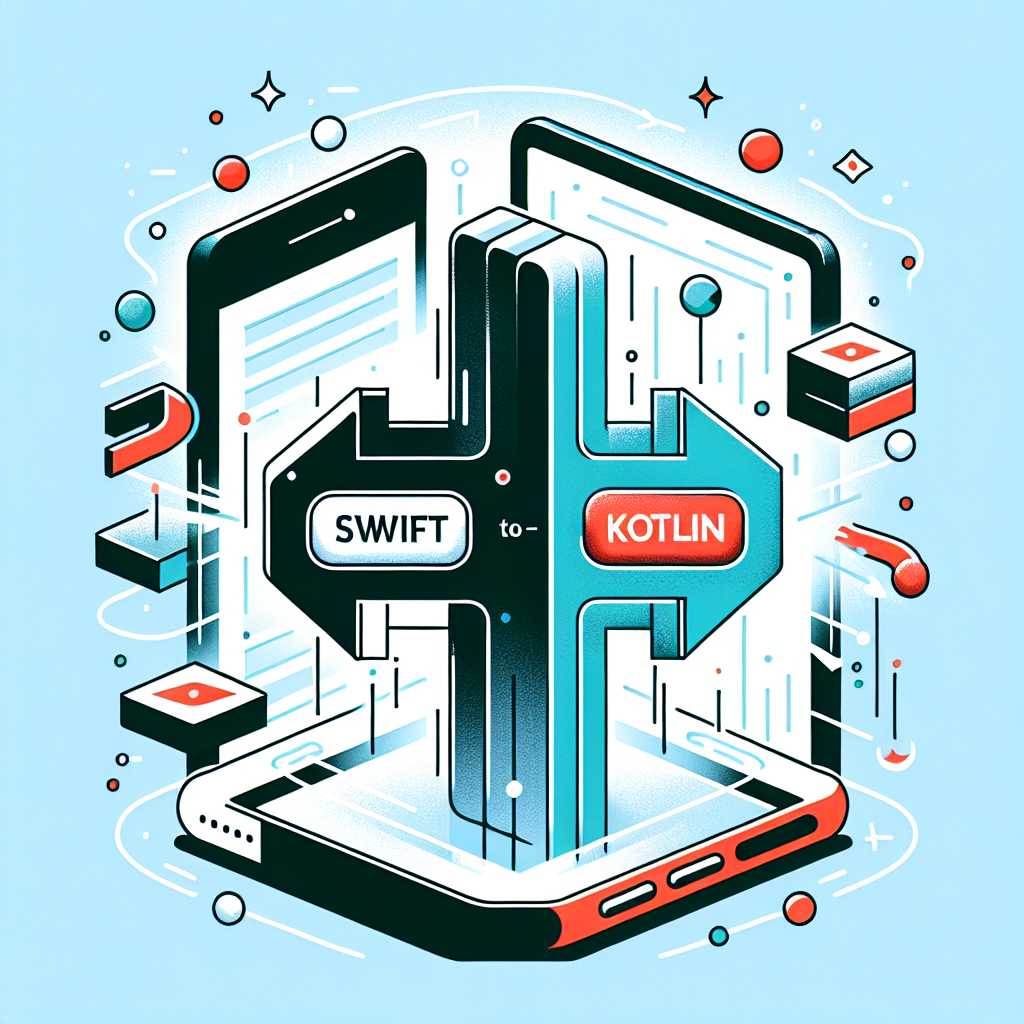Swift to Kotlin Converter: Effortless Code Migration
Effortlessly convert Swift to Kotlin with our powerful tool. Boost app development efficiency and streamline cross-platform projects. Try it now for seamless coding!
Source Code
Converted Code
Output will appear here...
Swift to Kotlin is a powerful conversion tool designed to seamlessly transform Swift code into Kotlin, enhancing cross-platform app development efficiency. Ideal for developers transitioning between iOS and Android, this tool ensures code consistency and reduces development time. With features that maintain code integrity and support easy language adaptation, its a must-have for modern mobile app projects.

Swift to Kotlin Conversion Tool Link to this section #
Transforming your codebase from Swift to Kotlin is now seamless with our Swift to Kotlin conversion tool. This tool is designed to assist developers in migrating their iOS applications to Android platforms efficiently, leveraging Kotlin's robust features.
Key Features Link to this section #
- Automated Conversion: Quickly convert Swift code to Kotlin, reducing manual effort and minimizing errors.
- Syntax Mapping: Accurately maps Swift syntax to Kotlin, maintaining code readability and functionality.
- Comprehensive Support: Handles complex Swift features like optionals, closures, and generics, translating them into Kotlin equivalents.
- Performance Optimization: Ensures that the converted Kotlin code follows best practices for optimal performance.
Conversion Example Link to this section #
Here’s a simple example of how Swift code is translated into Kotlin:
Swift Code:
let greeting = "Hello, Swift!"
print(greeting)
Kotlin Equivalent:
val greeting = "Hello, Kotlin!"
println(greeting)
Why Convert to Kotlin? Link to this section #
- Cross-Platform Development: Kotlin's interoperability with Java empowers developers to create cross-platform applications, enhancing code reuse.
- Modern Language Features: Kotlin offers advanced features like null safety, extension functions, and coroutines, making it a preferred choice for Android development.
- Community and Support: Backed by Google, Kotlin is increasingly becoming the standard for Android app development, with a growing community and extensive documentation.
Additional Resources Link to this section #
For a deeper understanding of Swift to Kotlin conversion, consider exploring these resources:
Conclusion Link to this section #
The Swift to Kotlin conversion tool is an invaluable asset for developers aiming to expand their app's reach to Android users. By ensuring code accuracy and leveraging Kotlin's advanced capabilities, this tool streamlines the transition process, fostering innovation and efficiency in mobile development.
Frequently Asked Questions
What are the main differences between Swift and Kotlin?
Swift and Kotlin are both modern programming languages used for developing mobile applications, but they cater to different platforms. Swift is primarily used for iOS development, while Kotlin is predominantly used for Android. They both support modern programming paradigms like object-oriented and functional programming, but they differ in syntax, platform-specific APIs, and ecosystem tooling.
Can I use Kotlin to develop iOS applications?
Yes, Kotlin can be used to develop iOS applications through Kotlin Multiplatform. This feature allows developers to share code between Android and iOS applications by writing shared business logic in Kotlin while using native UI frameworks for each platform.
Is it difficult to transition from Swift to Kotlin?
Transitioning from Swift to Kotlin can be relatively smooth for developers familiar with modern programming languages. Both languages share similar concepts like strong typing, optionals (null safety in Kotlin), and modern syntax. However, developers will need to learn the specific idioms and best practices of Kotlin, as well as adapt to the Android development environment if they are moving from iOS development.